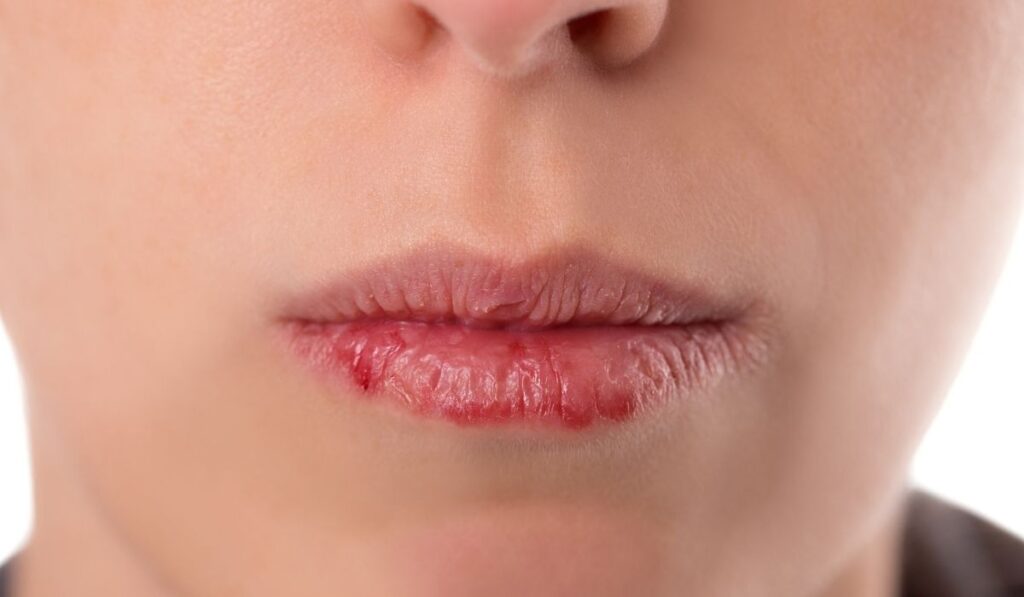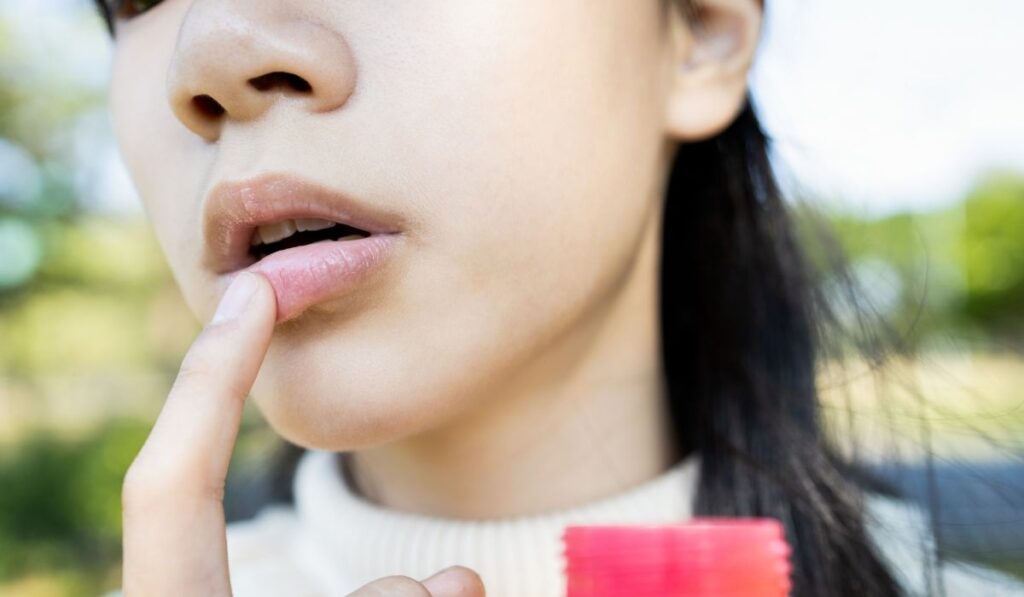Dry mouth is an incredibly uncomfortable condition that occurs when the salivary glands aren’t producing enough saliva. There are a handful of causes behind the condition, which makes it especially tough to pinpoint its exact origin. Many users of charcoal toothpaste, for example, have wondered whether it’s causing dry mouth.
Charcoal toothpaste can cause dry mouth if it contains Sodium Lauryl Sulfate (SLS). SLS is an ingredient with strong foaming and cleaning abilities that leave the mouth feeling clean and fresh, but it also can dry out the mouth and cause painful canker sores.
Let’s dive into the details. We’ll take a look at the symptoms of dry mouth, its causes, and a few ways to treat and prevent this unpleasant condition.
What Is Dry Mouth?

Dry mouth, also known as xerostomia, is a condition where the salivary glands don’t produce enough saliva to keep your mouth wet, resulting in discomfort in the mouth and throat. Dry mouth can also lead to other issues like inflammation and mouth sores.
Symptoms of Dry Mouth
If you’re experiencing dry mouth, you might notice some of these signs and symptoms:
- Bad breath
- Thick and stringy saliva
- Dryness or stickiness in your mouth
- Difficulty speaking, chewing, and swallowing
- Difficulty tasting the flavor of food
- Reduced appetite
- Sore throat and a hoarse voice
- Cracked or peeling lips
Causes of Dry Mouth
There are several reasons why dry mouth occurs. They include the following:
- Side effects of some prescription and nonprescription medications, such as drugs used to treat pain, anxiety, depression, colds, and allergies. Dry mouth can also be a side effect of certain sedatives and muscle relaxants.
- Side effects of some medical treatments like radiation exposure to the head and neck and chemotherapy treatments for cancer. These treatments could damage the salivary glands.
- Side effects of some medical conditions and infections like Sjogren’s Syndrome, menopause, and autoimmune disorders.
- Dehydration resulting from excessive sweating, fever, vomiting, blood loss, burns, and diarrhea.
- Damaged nerves in parts of the neck and head from surgery or sustaining injuries.
- Lifestyle choices such as chewing or smoking tobacco affect how much saliva you produce and can result in dry mouth.
Do All Charcoal Toothpastes Cause Dry Mouth?
Most charcoal toothpastes don’t cause dry mouth since they lack Sodium Lauryl Sulfate. SLS is an ideal ingredient for gum health. However, it can dry out your mouth and bring on canker sores.
If you often experience the symptoms of dry mouth or are taking medication that causes dry mouth, then it’s in your best interest to avoid bruising with toothpaste containing SLS.
Instead, you should go for a toothpaste brand containing a lower volume of the ingredient but that’s still resilient enough to battle plaque and cavities.
How Can I Treat Dry Mouth?
If your dry mouth is partnered with bad breath, brushing with Crest Complete Plus Scope Toothpaste (on Amazon) could work miracles for you. The unique formula instantly freshens your breath by eliminating germs.
If you want to add more moisture to your daily oral care routine, try rinsing with an alcohol-free mouthwash since alcohol can further dry out your mouth. Crest Pro-Health Multi-Protection Mouthwash (on Amazon) can help keep your teeth strong, gums healthy, and, best of all, it can relieve your dry mouth.
With a proper oral care routine, you can likely avoid risks like gum disease and tooth decay that might originate from dry mouth. A prescription toothpaste may be an option in some cases; speak to your dentist about your risk factors at your routine cleaning to see if you’re a candidate for this option.
No matter which toothpaste or mouthwash you settle on, be sure to brush at least twice a day, floss, and also visit your dentist twice a year to ensure you’re always in excellent oral health.
How Can I Prevent Dry Mouth?

The following are some ways you can avoid dry mouth and improve saliva flow:
Consult Your Doctor
Your doctor will inform you about products specifically made to treat dry mouth. A majority of these products are available over the counter, but some need a doctor’s prescription. They are some great artificial saliva substitutes and products that even stimulate the salivary glands to produce more saliva.
Always Stay Hydrated
Drink water throughout the day to ensure you don’t get dehydrated. 8-12 glasses of water a day should suffice. It can help to have a water bottle around at all times so that you don’t forget to drink water when you’re out of the house.
Chew Gum or Suck on Candy
Chewing gum or sucking on candy can also help keep your mouth moist. Before consuming these products, however, make sure they’re sugar-free to avoid cavities and calorie overload.
Avoid Caffeine, Alcohol, and Acidic Juices
Keep away from coffee and juices made from citrus fruits. The same goes for alcoholic drinks, including wine. Avoid consuming alcohol that’s hidden in products like mouthwash.
Moisten Your Food
You can moisten dry foods with milk, sauce, melted butter, or soup. This will make chewing and swallowing easier since your salivary glands aren’t producing enough saliva. Moreover, avoid salty or sugary foods and beverages.
Avoid Smoking or Chewing Tobacco
Apart from degrading our general health, smoking and chewing tobacco can aggravate dry mouth. Giving up smoking can be beneficial for alleviating dry mouth and improving your overall health.
Use a Humidifier
A humidifier (on Amazon) can come in handy, especially during the winter, to help moisten the air while you’re asleep.
Brush Your Teeth After Meals
Dip your toothbrush in a cup of warm water so that it’s soft and gentle for your gums. Always brush after each meal and before going to bed. If you’re under radiation treatments, you can use a fluoride rinse.


